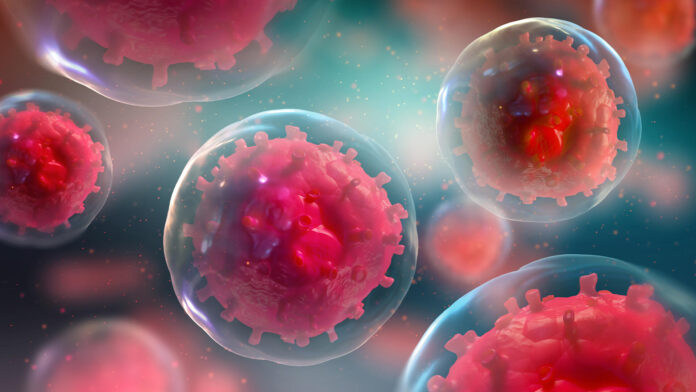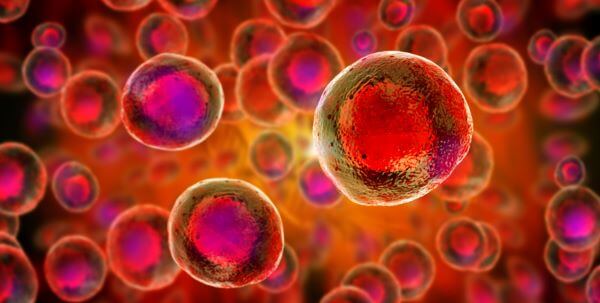In the quest for optimal well-being, we often focus on heart health or mental well-being, but there’s a microscopic world within us that’s just as vital. It is our cellular health.
Have you ever wondered what keeps you ticking at your best? Sure, you might think about heart health or mental well-being, but a tiny, bustling world within you is just as crucial: your cellular health.
These microscopic building blocks of life play a starring role in your overall health, and understanding them can be your secret weapon to feeling fantastic. Let’s dive into cellular health and discover what makes our cells smile (or frown)!
What Is Cellular Health?

Cellular health sounds like a complex scientific concept, but it’s quite straightforward. Simply, it’s all about how healthy and efficient our cells are. These tiny units are the foundation of all life processes in our bodies, from digesting your favorite foods to keeping your heart beating.
Each cell in our body has a specific role. They’re like tiny workers, each contributing to the bigger picture of our health. They repair tissue, fight off infections, and even help you think and move. Good cellular health means these workers are happy and efficient, leading to a healthier, more vibrant you.
When we talk about “cellular health,” we’re really looking at how well our cells can perform their tasks. Factors like nutrition, hydration, and lifestyle choices directly impact their efficiency. In a way, taking care of our cellular health is taking care of our entire body.
Key Factors Affecting Cellular Health

Like a high-performance car needs quality fuel, your cells need the right nutrients to function optimally. Diets rich in vitamins, minerals, and antioxidants are like premium fuel for your cells, helping them to thrive and protect themselves from damage.
Water is also vital for cellular health. Cells need water to transport nutrients, remove waste, and maintain their shape and structure. Staying hydrated is like giving your cells a refreshing bath, keeping them clean and functional.
Lifestyle and Environmental Influences
Physical activity isn’t just good for your muscles. It’s a cellular booster, too. Exercise increases blood flow, ensuring cells receive more oxygen and nutrients. It’s like giving your cells a mini workout, keeping them fit and functional.
Another fact that can influence your cell health is chronic stress. It disrupts cellular functions and can lead to inflammation and damage. Techniques like meditation, mindfulness, and adequate sleep are crucial for keeping your cells calm and healthy.
Environmental toxins like pollution, chemicals, and UV rays also constantly assault our cells. These can damage cellular structures and DNA. Protecting yourself from these toxins is vital for maintaining cellular integrity.
Signs of Poor Cellular Health

When your cells aren’t happy, your body will let you know. Fatigue, dull skin, slow healing, and frequent infections can all be signs of poor cellular health. Your body is sending an SOS signal, asking for better cellular care.
Ignoring the health of your cells can lead to more serious issues down the line, such as chronic inflammation, weakened immune response, and even increased risk of chronic diseases. By paying attention to these early warning signs, you can improve your cellular health before it leads to more significant health concerns.
Boosting Your Cellular Health
To give your cells a nutritional boost, focus on a balanced diet rich in fruits, vegetables, whole grains, and lean proteins. These foods are packed with vitamins, minerals, and antioxidants that protect and nourish your cells. Consider adding omega-3 fatty acids, found in fish and flaxseeds, known for their cell-friendly benefits.
Regular exercise is a powerhouse for cellular health. It’s not just about hitting the gym. Even moderate activities like walking or swimming can ramp up cellular metabolism and detoxification. Aim for at least 30 minutes of activity most days of the week to keep your cells in top shape.
Managing stress is non-negotiable for maintaining healthy cells. Practices like yoga, meditation, and deep breathing exercises can significantly reduce stress and its harmful effects on your cells. Simple changes, like taking short breaks throughout the day, can make a big difference.
Everyday Practices

Incorporating cellular health into your daily routine can be easy and enjoyable. Drinking plenty of water, choosing nutrient-rich snacks, and taking short walking breaks are simple habits that can profoundly impact your cellular well-being.
Focus on sustainable lifestyle changes rather than quick fixes for lasting cellular health. This includes regular physical activity, a consistent sleep schedule, and a balanced diet. These practices benefit your cells and enhance your overall quality of life.
Genetic Factors and Cellular Health
Genetics plays a significant role in determining an individual’s cellular health. While lifestyle choices are crucial, our genetic makeup can either predispose us to certain cellular strengths or vulnerabilities. Understanding this interplay is vital for a holistic approach to well-being. Some individuals inherit genes that enhance cellular repair mechanisms, making them more resilient to cellular damage. Conversely, others may carry genes that require extra attention to maintain cellular health. Genetic factors can influence cellular metabolism, oxidative stress levels, and susceptibility to certain diseases.
Avoiding Harmful Habitsf
Cellular health is not solely dependent on adopting positive habits but also on abstaining from detrimental ones. Harmful habits, such as smoking, excessive alcohol consumption, and substance abuse, can wreak havoc on cellular function. Smoking, for instance, exposes cells to toxic chemicals and oxidative stress, accelerating cellular damage and aging. Excessive alcohol disrupts cellular membranes, impairing their function and integrity. Substance abuse compounds these issues, leading to cellular dysfunction and overall health deterioration.
Embracing Cellular Health for a Happier, Healthier You

The tiny cells in our body play a gigantic role in our overall well-being. Every aspect of our lifestyle influences our cellular health, from the food we eat to the air we breathe. By adopting simple yet effective habits, we can nurture our cells and, in turn, enhance our health and vitality.
Taking care of your cellular health is more than just a scientific endeavor. It’s a pathway to a happier, healthier life. Start today, and let every cell in your body rejoice!









